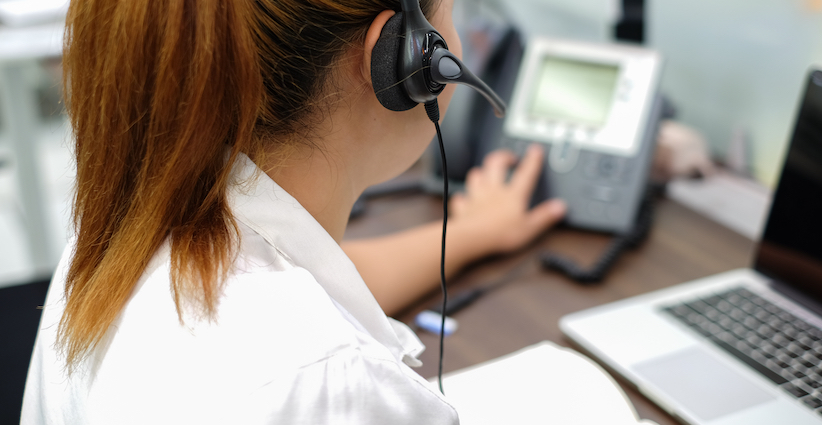Can the Rise of Chronoworking Help Fix Our Sleep?

Do you feel like most days, you’re out of sync with your scheduled work hours and dragging throughout the day? Or do you feel productive and happy with the hours you work? If you relate more to the second statement, it may be because you’re “chronoworking.”
British journalist Ellen Scott recently coined the term chronoworking to describe the concept of scheduling work hours around your chronotype. Since the start of the pandemic, an increased segment of workers have been allowed to work from home and set their own work hours. Currently, it’s estimated that one in four employees work remotely at least one day a week. In 2024, Scott predicts more companies will do away with 9 to 5 work schedules. Expanding chronowork has the potential to significantly improve productivity and workers’ sleep health.
Chronotype is your natural preference for sleep and activity timing. It’s what we think of as being a morning or an evening person. Early chronotypes feel most alert in the morning, while late chronotypes do their best work in the evening or at night. Chronotype has a strong genetic component and can’t be easily changed.
Regularly working at hours that don’t fit your chronotype can lead to short sleep during the work week and “catch-up” sleep on days off, termed social jetlag. It’s estimated that more than two-thirds of people experience ongoing social jetlag, with at least a one-hour difference between their natural rhythms and the schedule they are obliged to follow.
In the short term, working out of sync with your chronotype can cause drowsiness and trouble concentrating. In the long term, social jetlag can contribute to chronic health conditions, including mood disorders, obesity, diabetes, and heart problems.
Not only could chronoworking boost productivity, but it also means people are less likely to become misaligned with their natural chronotype. Flexible work schedules could play a key role in reducing negative health effects from social jetlag.

Studies on adapted work schedules due to the COVID-19 pandemic found that social jetlag shrank and sleep length improved when workers scheduled hours that worked better for their chronotypes. And recent surveys suggest that although people value the ability to work from home, they consider it even more important to have the option of flexible hours.
While the concept of chronoworking isn’t new, it’s only recently become a viable option for many workforce sectors. In contrast to remote work, which is only possible for certain sectors such as office workers, chronoworking may be possible for workers in jobs that require staff to be physically present.
In January, New York City reached an agreement with 911 operators to allow for flexible schedules, enabling much-needed time to rest after night shifts or long days. Washington, D.C.’s Manufacturing Institute is also looking at how factories could adjust shifts to be more people-forward.
Reflecting changing attitudes about the importance of flexible work schedules, Britain just passed a law giving workers the right to demand flexible work terms from day one in a new job (previously week 26). Under the law, which comes into effect this April, British workers can request changes to their start and finish times that better align with their needs. Will the U.S. be next?
Got a hot tip? Pitch us your story idea, share your expertise with SleepFoundation.org, or let us know about your sleep experiences right here.
References
10 Sources
-
Scott, E. (2024, January 1). These are the work trends I predict will be big in 2024. Working on purpose., Retrieved March 12, 2024, from
https://workingonpurposenewsletter.substack.com/p/these-are-the-work-trends-i-predict -
U.S. Bureau of Labor Statistics. (2024, February 27). Labor force statistics from the current population survey. United States Department of Labor., Retrieved March 12, 2024, from
https://www.bls.gov/cps/telework.htm -
Kalmbach, D. A., Schneider, L. D., Cheung, J., Bertrand, S. J., Kariharan, T., Pack, A. I., & Gehrman, P. R. (2017). Genetic Basis of Chronotype in Humans: Insights From Three Landmark GWAS. Sleep, 40(2), zsw048.
https://pubmed.ncbi.nlm.nih.gov/28364486/ -
Roenneberg T. (2023). How can social jetlag affect health?. Nature reviews. Endocrinology, 19(7), 383–384.
https://pubmed.ncbi.nlm.nih.gov/37221400/ -
National Institute of General Medical Sciences. (2023, December 11). Circadian rhythms.
https://www.nigms.nih.gov/education/fact-sheets/Pages/circadian-rhythms.aspx -
Raman, S., Hyland, P., & Coogan, A. N. (2024). Stability of social jetlag and sleep timing into the second year of the Covid-19 pandemic: Results from a longitudinal study of a nationally representative adult sample in Ireland. Chronobiology international, 41(1), 29–37.
https://pubmed.ncbi.nlm.nih.gov/38093635/ -
Castle, B. (2024, January 30). This benefit is more sought after than remote work. Fast Company., Retrieved March 12, 2024, from
https://www.fastcompany.com/91018765/benefit-more-sought-after-than-remote-work -
District Council 37. (2024, January 22). Mayor Adams announces agreements with DC 37, CWA Local 1180 to provide flexible work, pay increases to over 1,000 911 Operators, Supervisors., Retrieved March 12, 2024, from
https://www.dc37.net/news/newsreleases/2024/nr1_22 -
National Association of Manufacturers. (2024, February 6). Can a factory offer flexible work schedules?, Retrieved March 12, 2024, from
https://nam.org/can-a-factory-offer-flexible-work-schedules-30041/?stream=workforce -
Government U.K. (n.d.). Flexible working., Retrieved March 12, 2024, from
https://www.gov.uk/flexible-working













































































































































